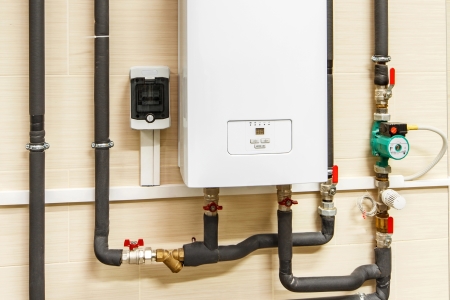What Temperature Should My Water Heater Be Set At?

One of the most frequently asked questions by homeowners is, "What temperature should my water heater be set at?" The answer isn’t one-size-fits-all, as it depends on your household needs, safety concerns, and energy efficiency preferences. However, understanding the ideal water heater temperature can help you balance comfort, safety, and cost savings.
The Recommended Temperature
The U.S. Department of Energy recommends setting your water heater at 120 degrees Fahrenheit (49 degrees Celsius). This temperature strikes a balance between providing hot water for your household needs while minimizing the risk of scalding. At 120°F, you can comfortably shower, wash dishes, and do laundry without worrying about dangerously hot water.
Avoiding Scalding Risk
One of the primary reasons to keep your water heater set to 120°F is to prevent scalding. Hot water at temperatures of 140°F or higher can cause severe burns in just a few seconds. This is especially important if you have young children, elderly family members, or anyone with sensitive skin in your household. Lowering the temperature reduces the risk of accidental scalding.
Energy Efficiency and Cost Savings
Setting your water heater to 120°F can also lead to significant energy savings. Water heaters account for a large portion of your home’s energy use, and every degree you reduce can lower your energy bill. For example, lowering the temperature from 140°F to 120°F can reduce energy consumption by up to 10%. This not only saves you money but also reduces the strain on your water heater, potentially extending its lifespan.
Avoiding Bacterial Growth
Some homeowners worry that setting their water heater too low might lead to bacterial growth, such as Legionella, which can cause Legionnaires' disease. While Legionella thrives in water temperatures below 120°F, maintaining a steady temperature at or above 120°F helps minimize the risk of bacteria growth while still keeping energy costs low. For households with immune-compromised members, a temperature of 130°F might be a safer option, but always use caution with higher temperatures.
Special Considerations
In larger households or homes with dishwashers that don’t preheat water, you may need to raise the temperature to 130-140°F to ensure adequate hot water supply. However, always weigh the pros and cons of higher temperatures, particularly the increased risk of scalding.
Conclusion
For most homes, setting your water heater to 120°F offers the perfect balance of safety, energy efficiency, and comfort. If you’re unsure about the best temperature setting for your needs, or if you need help adjusting your water heater, consider reaching out to a professional plumber for guidance.
